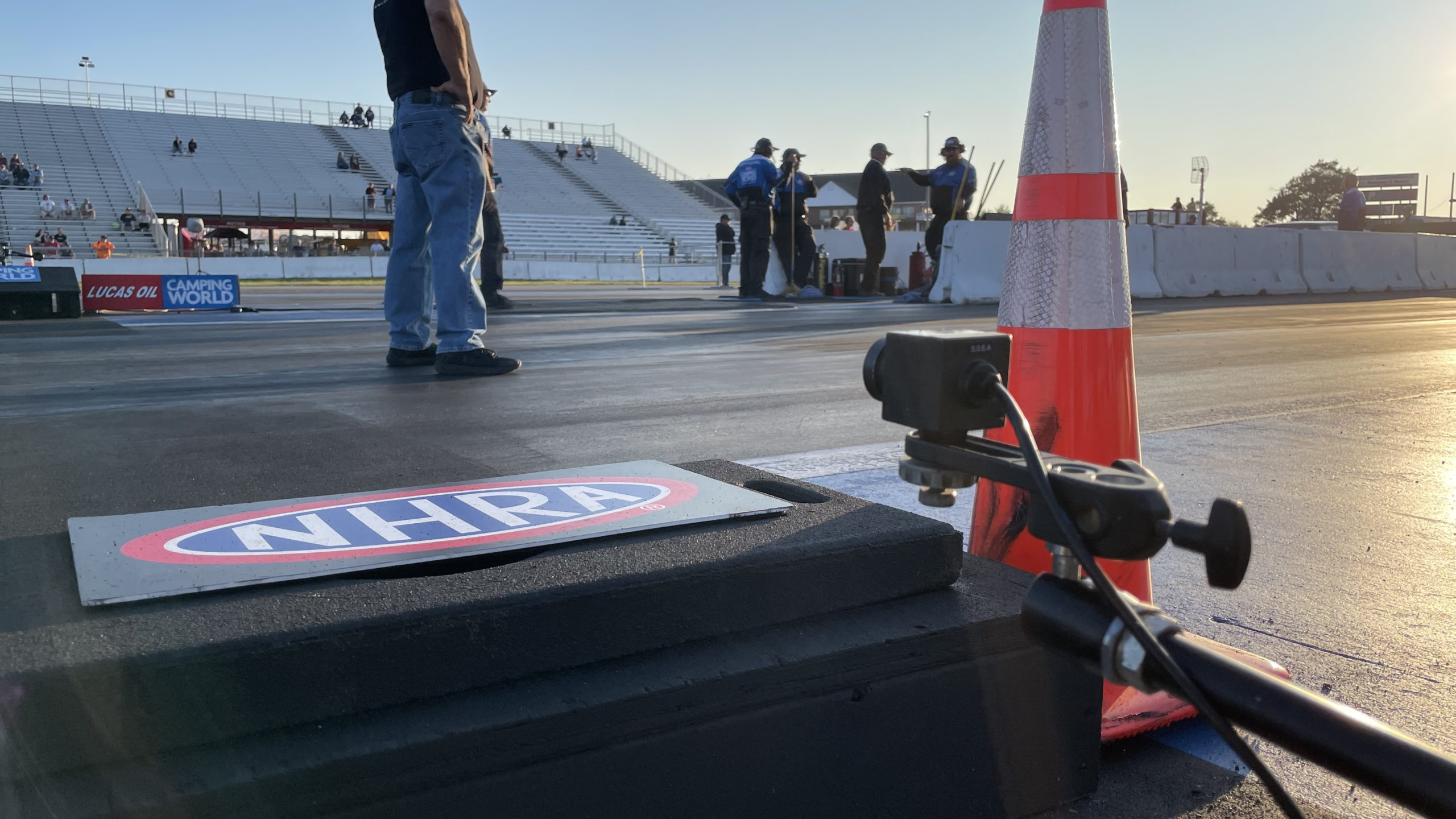CV344 Compact POV Camera Delivers Performance, Flexibility and Value in a Compact Form Factor
PHOENIX, AZ — As an Emmy Award-winning content specialist and tech manager, Rob Hedrick has an extensive background in live sports and television production. Hedrick serves as the Director of Production for The National Hot Rod Association (NHRA) and manages its live video solutions for broadcast and digital OTT delivery. With a network and digital broadcast schedule that includes over 50 events annually, Hedrick has come to rely on the CV344 Compact POV Camera from Marshall Electronics to help capture all the exciting quarter mile NHRA drag racing action.

Founded in 1951 by Wally Parks, the NHRA is a drag racing organization that sets rules in drag racing and hosts events all over the United States and Canada. With over 80,000 drivers in its roster, the NHRA claims to be the largest motorsports sanctioning body in the world. Popular NHRA drag racing events include its professional Camping World Racing Series and its non-professional sportsman divisions of the Lucas Oil Drag Racing Series.
The NHRA team uses the Marshall CV344’s primarily to capture the beginning of the race and the system’s light bulb indicators. On the reverse side, the CV344’s is also able to get the shot of the cars leaving the starting line. “The Marshall CV344 delivers unbelievable picture quality,” says Hedrick. “I have used them in the past and they are just excellent cameras. The CV344’s auto-iris feature is great because we don’t have to shade the camera every time something changes. It is also excellent at night.”
Hedrick and his team have found that drag racing fans are incredibly loyal to the sport regardless of what level of racing it is. “Drag racing fans love content and love to watch racing,” adds Hedrick. “In an effort to deliver more content, we started doing more non-professional sportsman races that are not typically covered at a national event. The sportsman side is broken into seven divisions with lots of racing across the country. We came up with the idea of Divisional Streaming Kits and are providing a streaming fly pack for each one of those divisional race groups so that that content can be streamed to our OTT channels. Each one of those kits will have three CV344’s in it and it will move from event to event with the divisional director. This initiative will bring us up to doing about 60 events across the association.”
For an application requiring easy transport, Hedrick finds the CV344 to be a perfect option. According to Hedrick, the set up includes the following gear. “The CV344 is situated on the tripod mount of a Tilta V-mount plate, which has a D tap on it,” Hedrick says. “I have an adapter that brings the D tap into the Marshall. The output of that also has another power connector that powers a fiber optic transceiver. So, the camera and the fiber are all powered off that one IDX DUO-C198 191Wh high-load battery, which gives us 22 hours of runtime. You don’t have to run any additional power to it, and you can have a thousand feet of fiber. The really nice thing is that with the Marshall on the plate with a battery, the whole thing fits in two or three Pelican cases. That’s really efficient.”
The Marshall CV344 Compact POV Camera offers performance, flexibility, and value in a compact form factor. Built around a next generation 2.5-Megapixelhigh performance HD sensor, the CV344 delivers ultra-crisp, clear progressive video up to 1920x1080p at 60/59/50fps and interlaced 1920x1080i at 60/59/50fps as well as 720p. The CV344 utilizes a full-sized BNC (3GSDI) output on rear panel and locking I/O connection for power, control, and stereo audio input (embedded on 3GSDI output). The CV344’s CS lens mount offers a wide range of prime and varifocal lens options from ultra-wide to telephoto.
“The CV344 is awesome,” adds Hedrick. “It’s size, picture quality, cost and durability are all fantastic. It is a great camera and I’m really thrilled that it’s fitting our needs. I really like how compact this whole thing is, and the fact that it can run on a battery and you do not have to run a million miles of extension cords. I think that is such an advantage to us because our finish line is literally 1,320 feet away from the starting line, and then that’s another thousand feet up to the booth.”
